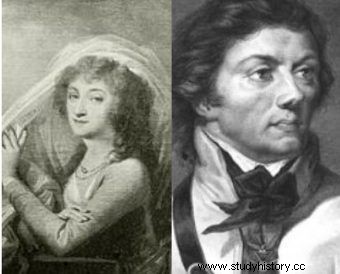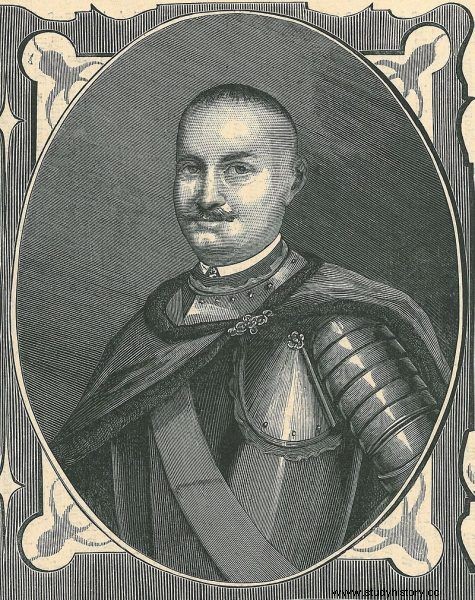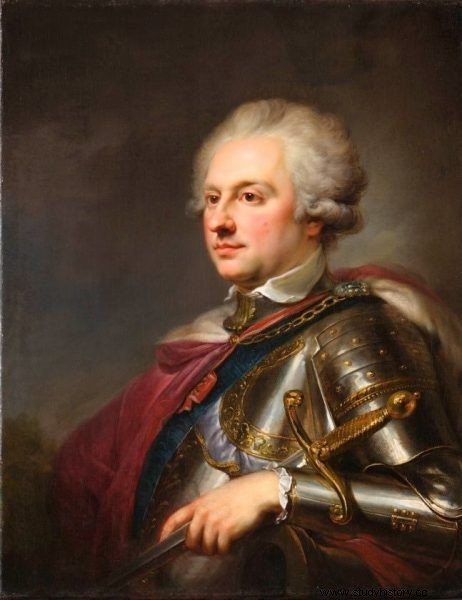Tadeusz Kościuszko - a hero of two nations, one of the greatest figures in Polish history, was not lucky with women. His great love ended with a real scandal and an attempt to kidnap his beloved. Had it not been for these events, perhaps he would never have become a hero of the US Revolutionary War.
There is probably no Pole who would not know Tadeusz Kościuszko. The leader of the famous insurrection, the hero of the US Revolutionary War, a visionary who was ahead of his time, however, was above all a man of flesh and blood. And his life was tormented by strong feelings that influenced his career. > He was unhappily in love, and perhaps the greatest love ended with his flight from the country.
A tiny noble
Tadeusz Kościuszko was born in the Mereczów region in Polesie. He was the fourth son of the Brest swordfish. He was educated at the Piarist College in Lubieszów. When it turned out that the family estate was to be inherited by his brother, Kościuszko chose a military career and entered the Knight's School founded by Stanisław August Poniatowski.

Ludwika was Kościuszko's greatest love
He was an exceptional and very knowledgeable student. Thanks to his outstanding results, he had the opportunity to complete a special engineering course. He was also educated in France. His talents contributed to America fighting for independence and struggling with Poland. Interestingly, his love life was a stark contrast to his brilliant career.
Hot feeling
Probably Kościuszko's greatest love was Ludwika Sosnowska. They undoubtedly had kindred souls and fell in love at first sight during the ball at the Knight's School. They made love to each other very quickly and thought about marriage. They dreamed of freedom and equality for all peoples, which they undoubtedly were ahead of their time. Although Kościuszko had to leave the country, their love did not cool down. As Andrzej Zieliński relates in his book Wielkie miłość, romanse, jealowania :
The feeling between the young did not die out despite their distance. Moreover, as his friend Julian Ursyn Niemcewicz wrote to Kościuszko:"the girl is still unoccupied, she misses and dreams of you and remains faithful
After his return, Kościuszko faced brutal reality. He could not develop his career because he could not afford to buy an officer's patent. Tadeusz's brother - Józef squandered his patrimony, so Kościuszko could not afford to buy a position in the army. So the great education and training of the hero were of no use. Without his fortune, he simply couldn't serve his country.

Ludwika Sosnowska was Tadeusz Kościuszko's greatest love
It was then that his beloved's father (unaware of anything) came to his aid. He hired Tadeusz as a drawing and mathematics teacher for his daughters, and commissioned him to arrange a French garden. The love of Tadeusz and Ludwika flourished although, as historian Tadeusz Korzon claims:
There are many stories about this love, supposedly from eyewitnesses, but in fact gossipy and so absurd that it is not worth repeating them. From written and certain evidence, we can only understand that the lovers' cooing could last about 5 months, from May to October 1775.
The symbols of great love were to be two intertwined trees planted in a French garden.
"Magnate's daughters not for little nobles"
Ludwika's father planned her future without consulting his daughter. At the card table, he promised her a hand to Prince Stanisław Lubomirski's son. It was supposed to be a compensation for the huge loss of the prince. For Sosnowski, it turned out to be a real treat - after all, his daughter would become a duchess, which was a considerable social promotion for the family. When the truth came out, Kosciuszko immediately asked for Ludwika's hand. His proposal was, however, rejected by Sosnowski. He was then supposed to contemptuously say "Synogarlice not for sparrows, and magnate daughters not for small noble ones."
Kościuszko decided to take a desperate step and decided to run away with his beloved and marry her without the consent of the family. When my father and the guards caught up with the fugitives, Kościuszko drew his saber, but at the sight of Ludwika's father, he immediately put it away. Andrzej Zieliński in the book Great love, romanse, jealousy reports:
However, they did not manage to get far, captured by the pursuit that was led personally by the abductee's father. Tadeusz Kościuszko was then severely chosen by the hetman's hetman's henchmen, and the virgin was sent to a monastery where she was to stay until the day of the wedding ceremony.

Józef Sylwester Sosnowski promised his daughter's hand to Prince Lubomirski during a card game
Upset, Sosnowski intended to accuse Kościuszko of kidnapping, which could have enormous consequences, including the death penalty:
It seemed that the unsuccessful one would suddenly find his epilogue in court. The most common punishments for kidnapping a virgin were the throat. To save himself, just in case, Tadeusz Kościuszko fled via Paris to America with a small sum from his friends. In Boston, he offered his military services to Benjamin Franklin, co-creator of the Declaration of Independence, as well as one of the so-called the founding fathers of the United States. Of course, the offer was accepted and soon "Kos", because it was difficult for his partners to pronounce this Slavic name correctly, became a hero of the fight for the independence of the United States.
The sparrow and the turtledove
Beloved Kościuszko married Józef Aleksander Lubomirski, with whom she had three children. Despite the long separation and many adventures of Kościuszko on the American continent, the relationship has stood the test of time. Ludwika still loved "petty nobility", tried to get as much information as possible about his struggles on the American continent. When Kościuszko returned to Poland as a hero who boldly proclaimed his views on equality, he undoubtedly corresponded with Princess Lubomirska.

Ludwika eventually became the wife of Józef Aleksander Lubomirski
In one of her letters, Ludwika wrote:
I would advise you to be convinced that in no one under the sun your fate arouses a livelier and more genuine occupation than in me. I never think of you without a certain feeling of heart and soul. It is very simple - my soul is not ungrateful, and you developed the first feeling of tenderness in it. Your misfortunes have always bothered me and I would like to redeem your happiness with my own happiness [...]
The duchess wrote a letter to King Stanisław August Poniatowski himself, recommending Kościuszko for service in the Polish army. The famous engineer returned to the capital to enlist the generals. Soon there was also a meeting during one of the balls in Warsaw. As Julian Ursyn Niemcewicz noted:“this meeting was so touching, and both of them were so thrilled with it that they could not talk to each other; both wandered off to another corner of the living room and cried. ”
Historians believe that Ludwika was Tadeusz Kościuszko's greatest love. She survived it by 19 years and was always deeply moved when she heard the Kosciuszko Polonaise.
Interestingly, love for Ludwika was not the only misplaced feeling, but it is a completely different story.
The article is based on the book by Andrzej Zieliński Wielkie miłość, romanse, jealowania. Amazing men, beautiful women and the biggest scandals in the history of Poland , which was released on the market by the Prószyński i S-ka publishing house.
